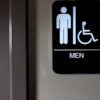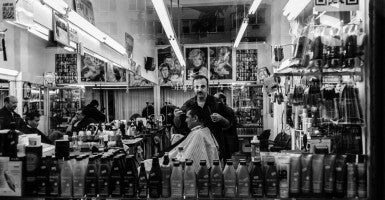It might seem absurd to suggest that allowing unlicensed florists to sell flower arrangements harms the public health and safety.
But states make claims like this every day.
A recent report from the Treasury Department, the Council of Economic Advisers and the Department of Labor reveals the alarming growth—and the huge costs—of America’s convoluted and burdensome occupational licensing system.
Typically, occupational licensing is justified by the need to protect the public’s health, safety and welfare. States restrict entry to a given profession to only those who meet certain minimum, state-sanctioned standards.
Most people can immediately name a few licensed occupations—doctors, dentists, engineers and lawyers, for example. Requiring minimum quality standards of professionals who hold our lives in their hands, or design the bridges we drive across and the buildings we live in, makes sense.
It is patently ridiculous, though, that barbers and cosmetologists are considered “unqualified” unless they complete, depending on the state, several years’ worth of training.
Requiring hundreds of hours of training, internships and apprenticeships and expensive licensing and examination fees is functionally not very different from a state simply capping the number of doctors, florists and barbers it allows to be employed.
Since many cannot make the cut, the supply of labor is restricted.
With states requiring government licenses to join an ever growing number of fields and disciplines, millions of Americans risk being barred from their chosen professions based on rules that often serve anti-competitive ends.
The White House estimates that 1,100 professions are subject to state licensure.
Sixty professions are licensed in every state, and 25 percent of the American workforce cannot practice their professions without state approval.
Accounting for federal occupational licenses, that number climbs to 30 percent.
In the 1950s, only 5% of workers were subject to occupational licensing requirements.
Some of the growth in licensing since then can be explained by workers who are increasingly likely to move into traditionally licensed fields.
Two-thirds of that growth, though, is the result of states moving to regulate more and more professions.
Today, states license occupations ranging from barbers to bartenders, cosmetologists to interior decorators, and fortune tellers to manure applicators (yes, manure applicators).
The consequences of over-regulating industries that should not require a license are extreme:
- Many workers are forced to undergo expensive training that may be of no relevance to their actual profession. The Texas Supreme Court just recently struck down a requirement for eyebrow threading professionals to obtain 750 hours of conventional cosmetology training in order to be licensed. This training did not spend a single second on the profession of eyebrow threading, and required passing two examinations that had nothing to do with eyebrow threading.
- Sixty percent of veterans have trouble translating their military skills into civilian job employment. Despite having worked in a certain profession in the military, veterans are often forced to undergo significant additional training to satisfy licensing requirements.
- The expansion of licensed professions has made it more difficult than ever for convicted criminals to find jobs after completing their prison sentences. In many states, having a criminal record is an automatic block to obtaining an occupational license. The American Bar Association has found that a wide array of licensed jobs, from barbering to employment in a medical field, are automatically unavailable to former criminals. Joblessness significantly increases the risk of recidivism.
- Having an occupational license in one state means nothing in the other 49. Licensing requirements vary, often significantly, state by state, and workers moving to a new state may face steep retraining and re-licensing costs. This serves to disincentivize workers from moving to economically prosperous areas and makes it difficult for states to attract competent out-of-state professionals.
- Licensure is often touted as a means of elevating the value of labor in an industry and driving up wages. But for those with lower levels of income and education, the result is just the opposite. Unlicensed workers earn 28 percent less than licensed workers. As a consequence, they may be unable to afford the costs associated with licensure. Making matters worse, as workers who are unable to join licensed professions pour into the unlicensed fields, wages naturally fall even lower.
Occupational licensing then is not just a barrier to entry. It is a barrier to upward mobility.
The primary beneficiaries of occupational licensing are the professionals who are already licensed.
Those already in the field face less competition and can charge higher prices for their services than markets would otherwise support.
State governments should revisit their occupational licensing regimes and separate out those that truly serve a public health and safety role from those that merely reflect political favoritism.
The cost of this anti-competitive protectionism is borne by the many, while the benefits accrue only to the lucky few, and the general public is made worse off.
If even this administration, certainly no fan of deregulation, can recognize the tremendous costs of heavy-handed occupational licensing schemes, then this issue cannot be ignored.































